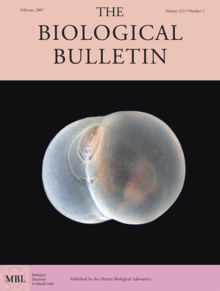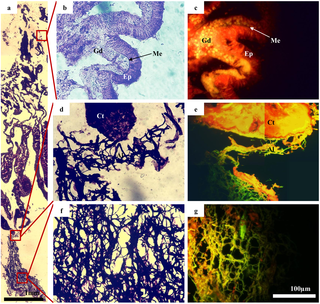I’ve been trying to get a larger reef filled up traveling to various lfs. In the midst of buying frags I have gotten about half a dozen mariculture pieces. Pieces looked good in store and have done well for a few months. Now they all seem to be rtn this week. All other corals in the display appear fine and are growing. I have been told mariculture frags are not typically long lived. True or any experience welcome?
Navigation
Install the app
How to install the app on iOS
Follow along with the video below to see how to install our site as a web app on your home screen.
Note: This feature may not be available in some browsers.
More options
You are using an out of date browser. It may not display this or other websites correctly.
You should upgrade or use an alternative browser.
You should upgrade or use an alternative browser.
Mariculture
- Thread starter TLO45
- Start date
- Tagged users None
Mariculture, as a rule, means clones/asexual reproduction, as opposed to sexual reproduction.
@Timfish has some dna research of original coral and fifth generation clones that supports that hypothesis.
@Timfish has some dna research of original coral and fifth generation clones that supports that hypothesis.
This is really a complex subject. To start with there's context specific variables at least species specific and likely genotype specific differences. We have little information on aging in corals and none in consecutive fragging of clones. When looking at aging in corals it can be divided into genotype age, colony age and polyp age. Genotype age is likely 1000's of years, colony age in some cases my be hundreds of years but max colony size suggests some species may be old at just a few decades or even just a few years and individual polyps may show signs of senescense at just a few months. Additionally, frag size does matter with smaller frags having a lower survival rate. And to add an additional spin on the problem corals have been shown to have environmental memory so it's important to match environmental conditions as closely as possible to the system the frags came out of. And to flip this whole problem on it's side the microbial processes in a system are critical and can trump water and lighting parameters.
In my own experience, I've had corals of the same clone line in seperate tanks have problems at the same time. Since some of these systems are miles apart and have different filtration methods, lighting and water sources and other related species don't seem to be affected the problem seems to be either something to do with that clone line or genotype. I want to emphasize this is speculative, there's no way for me to test to verify this.
Here's some links:

 link.springer.com
link.springer.com


 journals.plos.org
journals.plos.org
 onlinelibrary.wiley.com
onlinelibrary.wiley.com

 www.sciencedirect.com
www.sciencedirect.com

 www.sciencedirect.com
www.sciencedirect.com

 www.sciencedirect.com
www.sciencedirect.com

 www.sciencedirect.com
www.sciencedirect.com
In my own experience, I've had corals of the same clone line in seperate tanks have problems at the same time. Since some of these systems are miles apart and have different filtration methods, lighting and water sources and other related species don't seem to be affected the problem seems to be either something to do with that clone line or genotype. I want to emphasize this is speculative, there's no way for me to test to verify this.
Here's some links:
Senescence and dying signals in a reef building coral - Cellular and Molecular Life Sciences
Decreases in two physiological processes (reproduction and growth) have been shown to precede the advent of colony death in the branching coralStylophora pistillata. These diminutions were sometimes detectable even 6 months and more before any first visible sign of tissue mortality was observed.

Tissue Age Affects Calcification in the Scleractinian Coral Madracis mirabilis | The Biological Bulletin: Vol 212, No 1
In this study, two factorial experiments were used to investigate the role of tissue age in affecting the phenotypic expression of calcification in scleractinian corals. Both experiments tested whether calcification was altered by tissue age and whether corals of different ages exploit...
www.journals.uchicago.edu
Age-Related Shifts in Bacterial Diversity in a Reef Coral
This study investigated the relationship between microbial communities in differently sized colonies of the massive coral Coelastrea aspera at Phuket, Thailand where colony size could be used as a proxy for age. Results indicated significant differences between the bacterial diversity (ANOSIM, R...
Error - Cookies Turned Off

An experimental assessment of survival, re-attachment and fecundity of coral fragments
Many branching corals are routinely broken apart into live fragments, mainly by physical disturbances. Fragments have the potential to survive indepen…

Survival, growth, and branch production of unattached fragments of the threatened hermatypic coral Acropora cervicornis
Fragmentation has been regarded as the most important reproductive strategy in the threatened reef building coral Acropora cervicornis. Before the Car…

Effects of multiple perturbations on the survivorship of fragments of three coral species
Fist-sized fragments of Porites cylindrica, Porites rus and Pavona frondifera were deployed in single-species (P. cylindrica) and mixed-species (all t…

Differential survival of coral transplants on various substrates under elevated water temperatures
Closely related scleractinian coral species that exhibited similar survival patterns under relatively normal field conditions responded very different…
Similar threads
- Replies
- 5
- Views
- 254
- Replies
- 3
- Views
- 195
- Replies
- 26
- Views
- 1,204
- Replies
- 52
- Views
- 2,604













